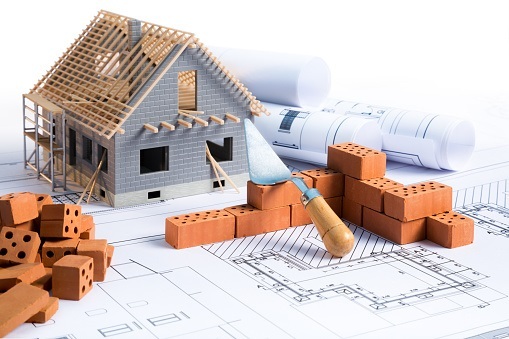
So, you are ready to start renovating properties. Maybe you want to upgrade the kitchen. You have the perfect kitchen in mind – granite countertops, glass splashback, polished concrete flooring, custom hardwood cabinets, and so on. Or maybe it is a simple project such as repainting the exterior walls or installing vinyl sidings.
Whatever the renovation project you have in mind, it will cost a bit of money. You can only recover that money if the upgrades are good enough to increase the value of your home when it comes time to sell. So, you cannot afford to hire an unprofessional contractor. Plus, you will need to monitor your contractor’s work closely for the best results.
Read on for property flipping tips to hiring a contractor and how to get the best work from a contractor.

1. Get the right type of contractor
What type of contractor does your project need? You can hire a general contractor or a specialty contractor.
A general contractor works on significant projects such as a full-scale home renovation project. They will manage the whole project, including permits, materials, and labor. General contractors typically have a full team that can handle the different aspects of your project.
Specialty contractors, aka subcontractors, focus on individual architectural elements such as windows, flooring, and roofing. Other specialty contractors are experts in specific areas of the house, such as kitchen or bedroom renovations.
Most renovation projects require a specialty contractor. Hiring a general contractor for a reflooring project or bathroom renovation means overpaying got expertise you do not need.
2. Shop around and do your research
After identifying the type of contractor your project needs, start shopping around. Ask for referrals from friends who have recently handled renovations similar to yours. Your real estate agent could also recommend experienced and reputable contractors in your area.
Do some research on the recommended contractors. Go online and see if they have any negative reviews. Visit their website and read testimonials.
3. Give the contractor as much information as possible
At this point, you have a few contractors you feel comfortable contacting. As mentioned before, these are busy people. Scheduling a home visit for them to see the scope of the work and provide a quote might take a while.
So, call them and provide as much information as possible. Take pictures of the space and send them. The idea here is to help the contractor understand the scope of the job so that they can tell you if they have the expertise and the time to handle it.
4. Schedule your project off-season
Unfortunately, there are not enough good contractors. The quality contractors are slammed with work. You might have to put your project on hold, waiting for a good contractor to get less busy.
But home renovations have seasonal patterns. According to a 2019 survey, contractors are busiest in summer and spring. Due to less demand, both materials are labor for home renovations are cheap between the months of October and March (winter and fall).
5. Avoid allowances in the contract
An allowance is a placeholder for an item that’s yet to be agreed upon. For instance, if you have not decided what type of countertop you want, the contractor will put an allowance. The issue with allowances is that items have a wide price range. So, you are likely to end up spending way more than the contractor estimated.
Therefore, make your decisions before the contractor starts working on his bid.
6. Agree on payment terms timeline in advance
Before any work begins, you should discuss and agree on payment terms and timeline. Most contractors will require a down payment. However, you should not pay a down payment of more than 10 percent of the total project cost. Whatever materials the contractor needs, they can get buy from their pocket or get on credit.
All the terms should be in writing; in the project’s contract. You should agree on the total price and the number of installments. The final payment should be paid after you are satisfied that the project is complete.
The contract should also define timelines to avoid tensions later on. Without clear deadlines and communications, delays and your frustration are inevitable.
7. Prepare for worst-case scenarios
Even with proper preparation, there is still a chance for surprise expenses. For example, removing the floorboards might reveal problems with the floor that are not in the budget. Similarly, demolishing a wall might cause unplanned complications.
So, ask the contractor for worst-case scenarios. What else could happen, and what would be the costs?
8. Check the contractor’s work
Ensure your contractor is on schedule and doing good work by inspecting the project every day. The best time to check the work is at the end of the day after the workers have left. Note down your observations and ask the contractor about them as soon as possible.
When inspecting the work:
- Check against the blueprint to make sure fixtures have been installed in the right locations
- Check the model numbers of fixtures and appliances against your invoices, contractor’s bid, and receipts to make sure they installed the products you chose
- Check the completed work for quality issues such as misalignments
9. Be good to the contractor and the workers
If you are kind to the contractor and team, they will enjoy working for you and do excellent work. Being good to the contractor means giving the check on time and complimenting the work (if you feel it is worth praising).
Being kind to the workers is simple:
- Greet them every chance you get and be friendly to them
- Designate a bathroom they can freely use
- Serve them cold lemonade on a hot day or hot chocolate on a chilly morning

Thank you so much for Sharing your Gifts!
Thank u so much for sharing your knowledge & tops & giving free if your time! BLESSINGS!
Great info Annetta,thanks for helping us get to financial freedom!💪